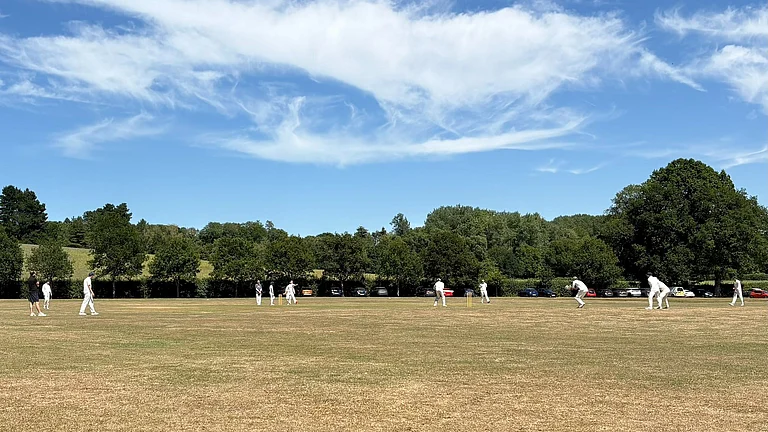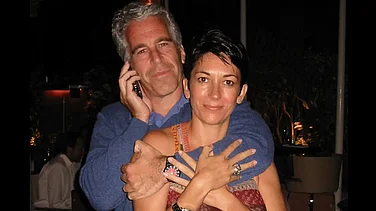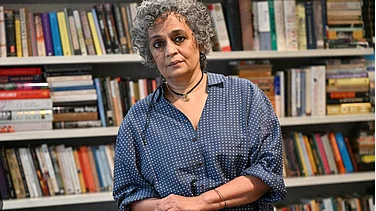Russia and Turkey voiced support on Wednesday for the creation of a safe maritime corridor in the Black Sea so Ukraine can export grain to global markets amid an escalating world food crisis.
But Russia demanded that the Black Sea be demined and Turkey said allowing the Ukraine exports should be accompanied by easing Western sanctions against Russia.
Turkish Foreign Minister Mevlut Cavusoglu hosted his Russian counterpart Sergey Lavrov in Ankara for discussions focused on a UN proposal to free Ukraine's Black Sea ports and allow 22 million tons of grain sitting in silos to be shipped out.
The two allies appeared eager to dictate the terms of Ukraine's exports — which have been strongly affected by Russia's invasion of Ukraine — and cement further control over the Black Sea. Ukraine was not invited to the talks.
Ukraine is one of the world's largest exporters of wheat, corn and sunflower oil, but the war and a Russian blockade of its ports have halted much of that flow, endangering food supplies to many developing countries. Many of those ports are now also heavily mined.
Russia has urged Ukraine to remove mines from the area near the Black Sea port of Odesa to allow safe grain exports.
Russian President Vladimir Putin has vowed that Moscow will not use the demined corridors to launch an attack on the key Ukrainian port of Odesa — but Putin also insisted earlier this year that he had no plans of invading Ukraine.
Lavrov said on Wednesday that Russia is ready to formalise that guarantee for Odesa.
The Russian envoy promised that Russia would not “abuse” its naval advantage if Ukraine's ports were demined and would “take all necessary steps to ensure that the ships can leave there freely”.
Moscow also insisted on its right to check the incoming vessels to be loaded with grain to make sure they don't carry weapons into Ukraine.
Ukraine, which was not represented at the Ankara meeting, says the Russian promise not to use safe shipping corridors to attack Odesa is not credible.
The head of Ukraine's grain traders group has also scoffed at Turkey's effort to negotiate a deal with Russia to allow Ukrainian grain exports to resume, saying that Ankara is not powerful enough to act as a guarantor against Russia.
“Turkey doesn't have enough power in the Black Sea to guarantee security of cargo and Ukrainian ports,” Ukrainian Grain Union chief Serhiy Ivashchenko said on Wednesday.
He said it would take 3 to 4 months to remove sea mines, and said it was the Russians who have mined the area.
Both Russia and Turkey would benefit from the export plan. The same corridor would also allow Russia to safely export its food and fertiliser.
Turkey says it would facilitate and protect the transport of the grain in the Black Sea — a move cutting out other possible shippers.
“We find this plan reasonable and see it as a feasible one,” Cavusoglu told a joint news conference with Lavrov.
The scheme, however, would require negotiations between Moscow and Kyiv, he added.
The Turkish minister also backed easing Western sanctions against Russia for its invasion of Ukraine if it participates in the plan, saying that seemed “quite legitimate”.
“If the whole world is in need of the products to be exported by Ukraine and the Russian Federation, then a method needs to be established,” he said, adding that he hoped “technical preparations” could be made “as soon as possible”.
While grain exports are exempt from Western sanctions, Russia claims that sanctions on its shipping make it impossible to ship its grain to global markets. European Union officials emphasised again that the bloc did not impose sanctions on food.
“The Kremlin is weaponising food supplies and surrounding their actions with a web of lies, Soviet style," European Council President Charles Michel told the European Parliament on Wednesday.
Ukrainian President Volodymyr Zelenskyy and Turkish President Recep Tayyip Erdogan discussed the creation of a safe sea corridor last week, the Ukrainian Foreign Ministry said on Tuesday.
The ministry also called for security guarantees, such as a supply of weapons to defend against maritime threats and the participation of NATO ships in the Black Sea.
Turkish Defence Minister Hulusi Akar said details of the export plan were still being worked out.
“Our efforts are continuing concerning the technical planning on such issues as how it will be done, how the mines will be cleared, who will do it, how the corridor will be established and who will escort (ships),” Akar said.
Addressing the possibility of resumed peace talks between Kyiv and Moscow, Cavusoglu said Turkey was “much more optimistic."
Turkey hosted previous talks between Russian and Ukrainian officials in March but since then little progress has been made.
“We see an optimistic atmosphere in terms of going back to the negotiation table,” Cavusoglu said, citing recent comments by Zelenskyy. He reiterated Ankara's offer to oversee a meeting between Zelenskyy and Putin.
Lavrov said Russia was willing to hold further talks but accused Zelenskyy of “changing his position all the time” over conditions for a leaders' summit.
Lavrov arrived in Turkey two days after NATO members Bulgaria, North Macedonia and Montenegro reportedly refused to allow his plane to fly through their airspace to reach Serbia.
Lavrov's plane was able to fly directly to Turkey over the Black Sea.
Lavrov's discussions in the Turkish capital also focused on Turkey's plans to launch a new cross-border offensive in northern Syria against Syrian Kurdish militia that Ankara a security threat.
Turkey needs Moscow's approval to continue its presence in northern Syria, despite the two supporting opposite sides in Syria's civil war.
In 2020, 37 Turkish soldiers were killed in Russia-backed airstrikes against rebels in Syria.
“Turkey really needs Russia's blessing in order to be able to carry on this operation (in Syria.) And so I think they're really going to try to get that kind of a concession out of the Russian side,” said Merve Tahiroglu, Turkey programme coordinator at Project on Middle East Democracy.
Lavrov's meeting came as Turkey — a NATO member — has voiced strong opposition to Sweden and Finland's recent bids to join the alliance.
Moscow has also objected to the Nordic countries' candidacy — which analyst say may play a role in discussions concerning Syria.
Turkey has maintained its close ties to both Ukraine and Russia. It has criticised Russia's invasion of Ukraine, but hasn't joined international sanctions against Russia.





















